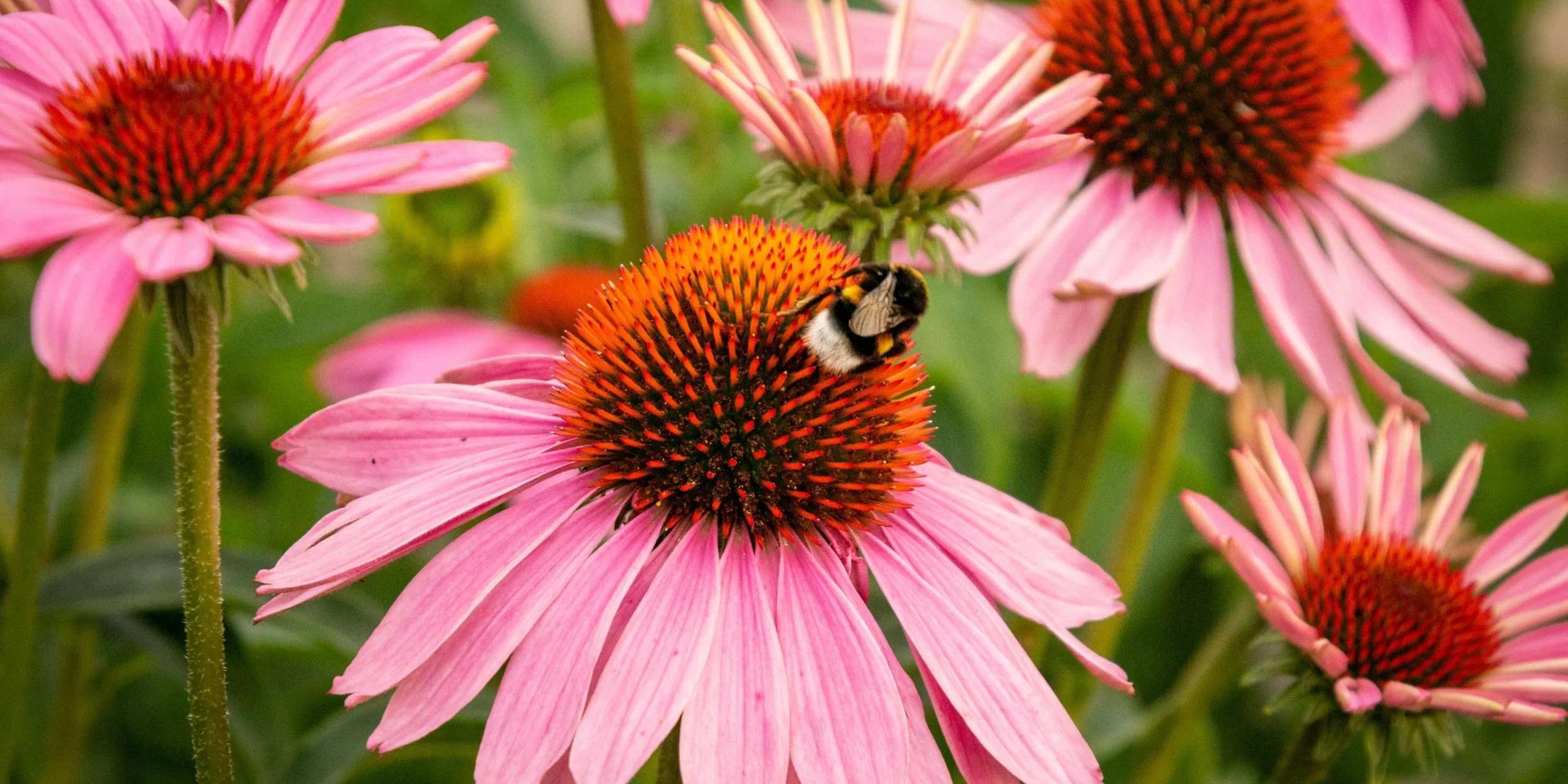
Donate Today!

Community Outreach
Where do your donations go?
We believe in healing the planet one neighborhood, flower, & pollinator at a time. Our community outreach programs focus on restoring native wildlife habitats, providing environmental education, and cultivating community gardens that nourish both people and the planet.
Native habitat restoration
Through hands-on habitat restoration projects, we work with local volunteers to reintroduce native plants, remove invasive species, and create safe havens for birds, pollinators, and other wildlife. Our educational initiatives engage schools, families, and community groups in learning about biodiversity, conservation, and sustainable living. And our community gardens offer fresh, healthy food while strengthening local bonds and promoting environmental stewardship.
Education & resources
Your support helps us provide tools, resources, and training to empower communities to take action. Every donation directly fuels grassroots efforts to protect ecosystems, educate future generations, and grow greener, healthier neighborhoods.
Make your money go further
Net sales from all products, including honey, herbal tea, seeds, and live plants, directly fund terrestrial preserve restoration, community outreach , & conservation initiatives.

By choosing native plants and protecting the pollinators that depend on them, we heal the delicate threads that hold ecosystems together. Through meaningful community engagement, we inspire and equip individuals to take action—nurturing a future that is both resilient and rooted in ecological harmony.
Together, we’re not just mending the land; we’re rekindling a vital connection to nature and shaping a healthier, more vibrant world for generations to come.

FAQs
-
Educational Materials & Resources: Creating interactive exhibits, online learning modules, and educational kits for use in classrooms and at home.
Educator Training: Investing in professional development for our educators to ensure they deliver high-quality, impactful learning experiences.
Public Awareness Campaigns: Developing campaigns to highlight critical environmental issues, such as pollinator decline, and advocate for sustainable practices.
Staff Salaries: Supporting a dedicated team of experts in conservation, education, and outreach.
Office Space & Utilities: Basic operational expenses for our physical presence.
Technology & Communications: Maintaining our website, email systems, and communication tools to connect with supporters and share our progress.
Fundraising & Grant Writing: Investing in efforts to secure additional funding to expand our programs.
Auditing & Legal Fees: Ensuring financial accountability and compliance.
Volunteer Program Support: Recruiting, training, and equipping volunteers who provide invaluable hands-on help with restoration projects, saving significant labor costs. This includes providing necessary supplies, refreshments, and safety measures for volunteer events.
Community Workshops & Events: Organizing public workshops on topics like native gardening, composting, water conservation, and pollinator-friendly practices. These events foster a sense of shared responsibility and empower individuals to take action.
Partnerships & Collaborations: Supporting collaborations with local schools, businesses, and other non-profits to amplify our impact and reach a wider audience.
Informational Materials: Creating and distributing educational brochures, signage for preserves, and online
Native Plant Procurement & Propagation: Purchasing locally sourced native seeds and plants, or cultivating them in our own nursery, ensuring genetic integrity and ecological appropriateness for our region.
Site Preparation & Maintenance: Labor and equipment for removing invasive species (which choke out native plants), improving soil health, and preparing restoration sites for planting. This can be a significant ongoing cost to ensure long-term success.
Planting & Reforestation Efforts: Mobilizing staff and volunteers to plant trees, shrubs, grasses, and wildflowers that create vital habitats for local wildlife, including essential pollinators.
-
Yes! 100% of our net product sales directly support terrestrial preserve conservation efforts. We're able to offer these highly nutritious organic herbs, honey, and seeds thanks to pollinators, and this is another way we can give back to our magical pollinator friends for a healthier future!
-
We are a nationwide organization with several volunteer opportunities available!
you can find our upcoming events, courses and clean up projects on our about page or email us at community@terrestrialpreserve.org to request a habitat cleanup and native restoration in your community!
-
We are currently accepting applications for habitat restoration projects in East Texas. Email us at community@terrestrialpreserve.org for more information!